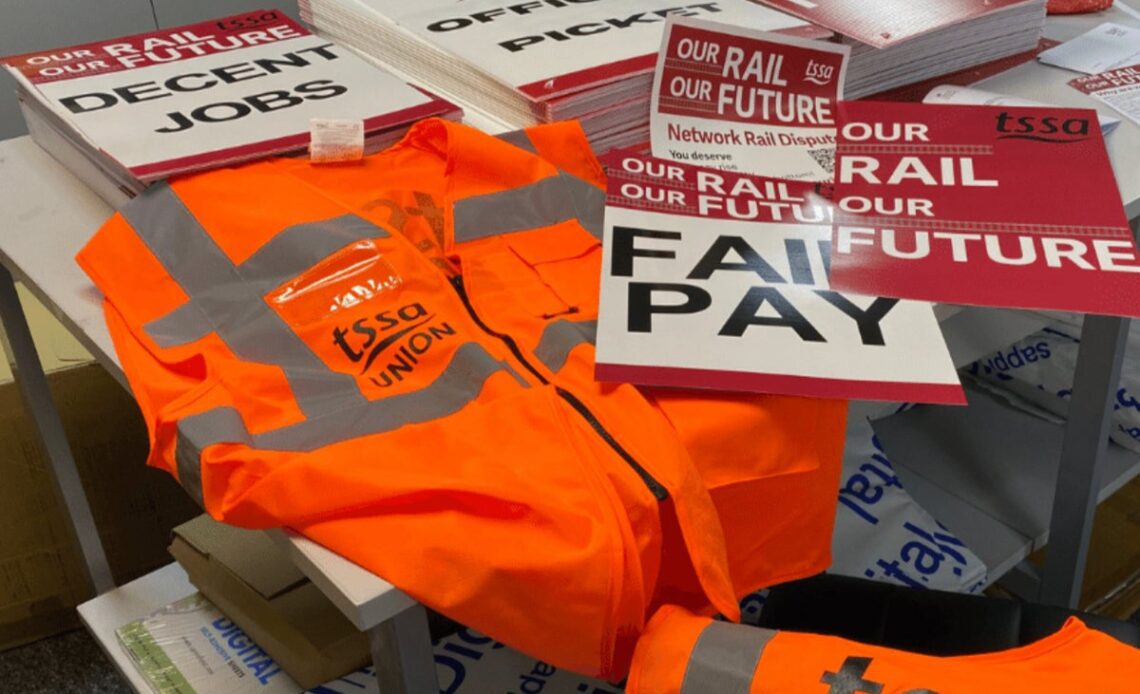Another rail strike has been announced for September in the ongoing dispute over working conditions and pay. But who’s involved and how will it affect passengers?
Who is striking?
Members of the white-collar rail union, the Transport Salaried Staffs’ Association (TSSA) will walk out from 12 noon on Monday 26 September for 24 hours.
The union represents members working as ticket office and gate staff at stations, some control centre and engineering staff and “a wide range of operation and support roles”.
The TSSA is much smaller than the main rail unions, Aslef (representing train drivers) and the RMT (many roles from signalling to guards).
The next strike involves TSSA members working for Network Rail and nine train operators:
- Avanti West Coast
- c2c
- CrossCountry
- East Midlands Railway
- Great Western Railway
- LNER
- Southeastern
- TransPennine Express
- West Midlands Trains
What is the industrial action about?
The TSSA is in dispute with Network Rail and all the train operators regulated by the Department for Transport (DfT) over pay, job security and employment terms and conditions.
The union is striving for a better pay deal than what it calls an “insulting 2 per cent offer” earlier in the summer.
The strike is timed to coincide with the Labour Party Conference being held in Liverpool. The union says: “As a Labour-affiliated union, TSSA will be looking for support from conference delegates and MPs to join them on the picket line to show solidarity in fighting the Conservatives’ cost of living crisis.”
A spokesperson for the Rail Delivery Group (RDG), representing train operators, said: “We are disappointed that TSSA has announced plans to take further strike action at the end of September. The industry is still recovering from the pandemic and passenger numbers remain 20 per cent below pre-Covid levels.”
What will the effect be?
Any strike, by definition, is intended to cause disruption. But while TSSA members play important roles on the railway, the likelihood of significant disruption is low. It’s most unlikely that we’ll see mass cancellations of thousands of trains, as has been the case on days when members of the RMT and Aslef have gone on strike.
In addition, support for strikes is not as strong as with the RMT and Aslef – where ballots have typically gone 90:10 in favour of strikes, on high turn-outs.
But at the latest ballot of West Midlands Trains staff, TSSA members voted 70:30 on a turn-out of 65 per cent – representing only 45 per cent of…
Click Here to Read the Full Original Article at The Independent Travel…
